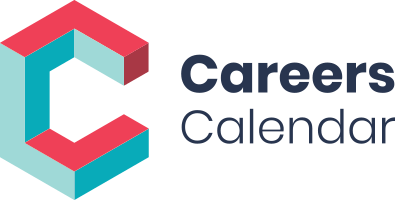Are you planning a career event for your students? Here are some practical insight into the things you can do to ensure your events are better than average. After all, who wants to be average?
Event planning can be stressful, even the most seasoned pros find it challenging. There will never be enough hours in the day, and something will always go wrong. Anything you can do to be more efficient creates a better event and makes your life a whole lot easier! Here are 6 practical tips you can use to help minimize stress & increase productivity this academic year.
Set clear and achievable goals
Set clear and achievable goals by working with the end in mind. It can be really helpful to write down your objectives for running an event. This might be something like “Help students identify what they want to do next in life” or “create networking opportunities for students to learn about different job roles”. The two are very similar but they are very different and make for a completely different type of event.
Minimize last-minute changes
Running an event means working with lots of different stakeholders including representatives from universities and organisations right the way through to students, parents, teachers and governors. Set expectations with each group to avoid any confusion. This gives you the opportunity to bring them on board earlier and they’ll feel part of the event. As an idea, seek to find a career champion or champions within the student body. These students can help support you throughout the year and provide support at each event. It will also look great on their CV and personal statements.
Ask for feedback
Most people think that feedback comes at the end of the event but it doesn’t. You need to be taking feedback throughout the event planning process. In this case, it might be helpful to set up a focus group at the beginning of the year where you can elicit the opinion from a range of stakeholders or maybe use your school council as a sounding board to get feedback.
Conventional feedback taken at the end of an event is important and should be collected. Ideally, you need to know who they are, their email, how they reviewed the event (score), post-event action, and any additional comments. Try to collect feedback from all stakeholders. The Careers Calendar platform will send all attendees an automated email which asks

Meet student need
In my experience, this is the most important point. There really is no point in planning an event that doesn’t meet the needs of the students. Students don’t always know what they need, so a mixture of research and professional judgement is needed here. Research can take the form of conversations across a particular year group or a structured approach like a survey which allows you to reach a bigger audience in a shorter amount of time. Whatever you do, do not plan an event on where students have historically applied to. This approach can be helpful to keep aligned with the tradition of your school but it isn’t aligned with understanding and meeting the ever-changing needs of your current students. Through the Careers Calendar platform careers leaders can now survey the needs and aspirations of their students with a simple survey.
Research can take the form of conversations across a particular year group or a formal approach like a survey which allows you to reach a bigger audience in a shorter amount of time. Whatever you do, do not plan an event on where students have historically applied to. This approach can be helpful to keep aligned with the tradition of your institution but it isn’t aligned to understanding and meeting the ever-changing needs of your current students.
Self Care is your number 1 priority
According to CareerCast, event planning is the fifth most stressful jobs in the World. Most Careers Leaders haven’t been trained in event planning and yet it features as part of their job. So be nice to yourself, have an end of day ritual that helps you to distress. For me, it’s Yoga or running. Taking care of yourself means you will have enough energy and focus to take care of everything else. I add this in because in the past 5 years I have delivered an average of 60 events a year; I understand the stresses and strains of event planning and management.
Make Career Event Planning Easy!
The Careers Calendar is a free tool where Careers Leaders or organisers of career events can plan, manage, deliver and evaluate their career events including presentations, workshops, and fairs. We help you to plan your event in under 10 minutes and provide you with a pre-event engagement tool that helps you to promote your event across the school community. It is free to use. More information about the Careers Calendar platform can be found here.

